

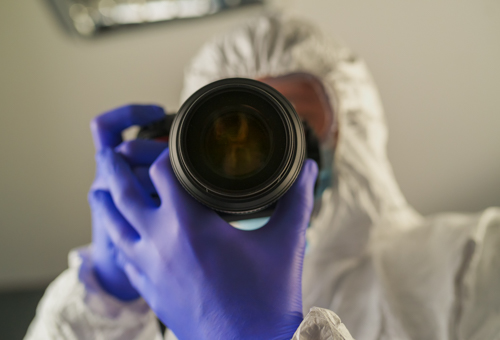
Explore strategies for conducting death investigations that occur from several origins. Learn how to evaluate the crime scene, conduct effective interviews and interrogations, develop case leads, utilize investigative resources (crime laboratories, medical examiners), and comprehend medical autopsies.
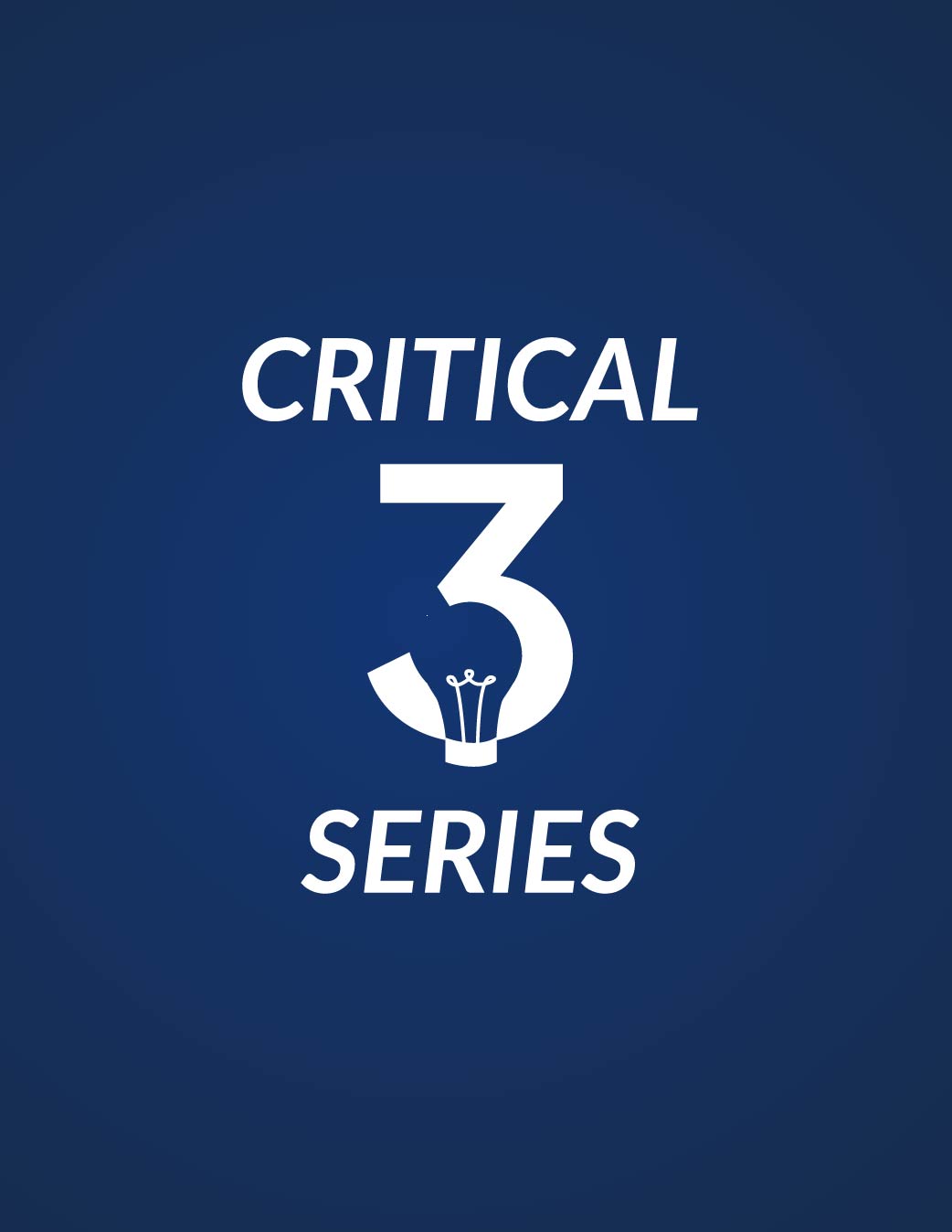
Suspicious deaths can take months or even years to solve. Collaboration is key to a positive outcome for victims and their families. Bill Hanson shares three critical ways to ensure success in your death investigation cases.

Matrix for the Law Enforcement Liaisons (LEL) Academy

Learn how to objectively investigate child death cases, particularly when the cause and manner of death is unexplained. Examine investigative mindset from initial call-out to case resolution and learn how to gain an understanding of what happens with a victim-centered approach, exploring the emotional trauma of the non-offending caregiver. Discuss possible causes of death and best practices and tips including various investigative steps for evidence collection, witness and suspect interviews. This basic course offers law enforcement, CPS, and other child death investigators up-to-date practices for the investigation of child deaths.

Select interviews from Tribal Probation Academy participants proclaiming the value of the training they receive at NCJTC Tribal Probation Academy and the need for such training.
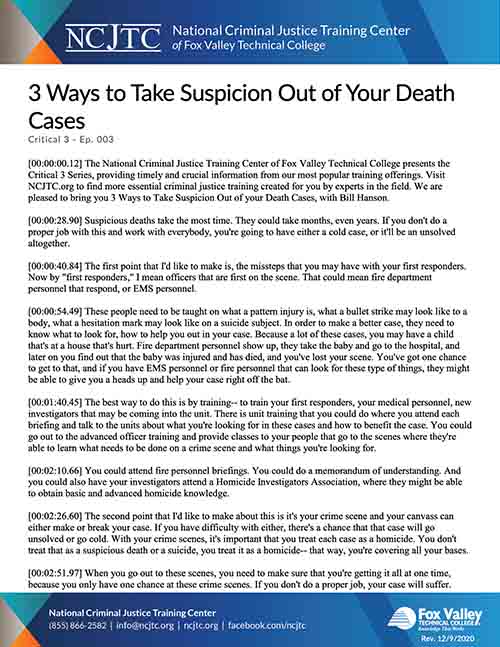
Transcript for Critical 3 - Episode 003 - 3 Ways to Take Suspicion out of Death Cases - 508
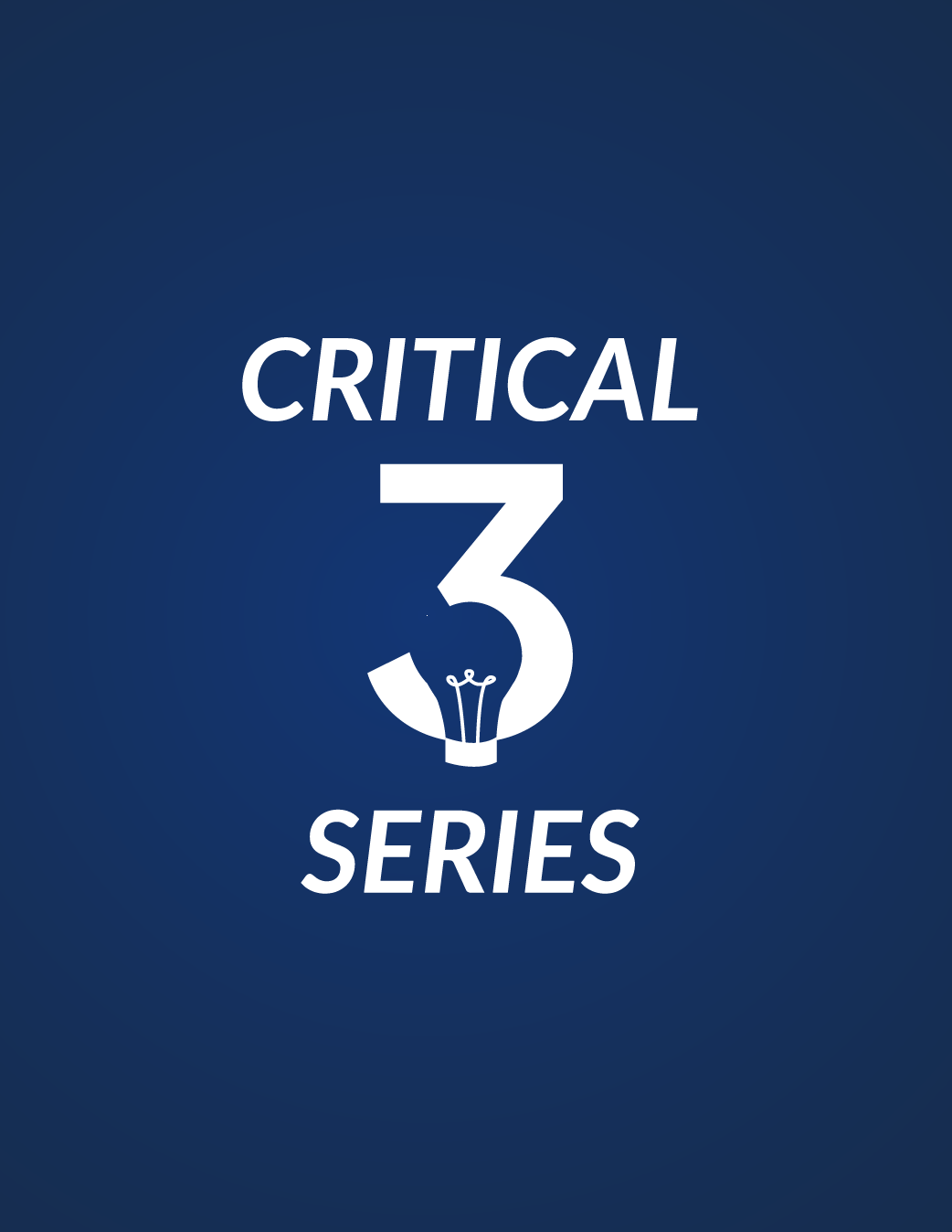
Why should sexual assault investigations begin with belief? How does being trauma informed lead to successful investigations and prosecutions? Kathryn Marsh shares three critical ways to focus on victims during investigations.

PPT Slides for Proficiency Creates Simplicity: Cross Platform Investigations for Tribal Probation Officers webinar - 508C

Transcript for Proficiency Creates Simplicity: Cross Platform Investigations for Tribal Probation Officers webinar - 508C
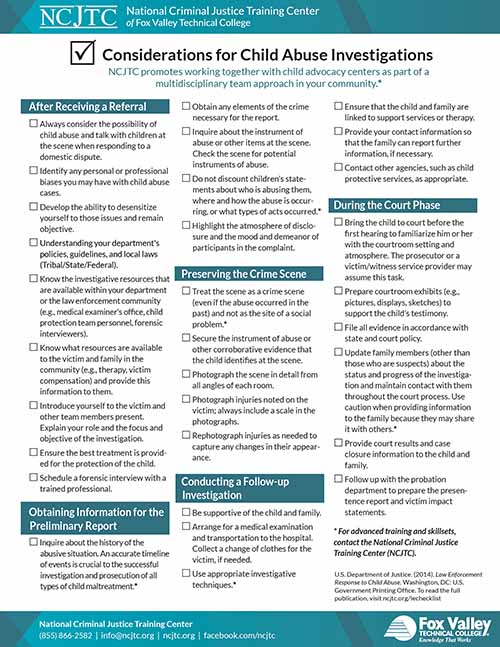
Checklist: Considerations for Child Abuse Investigations, infographic
